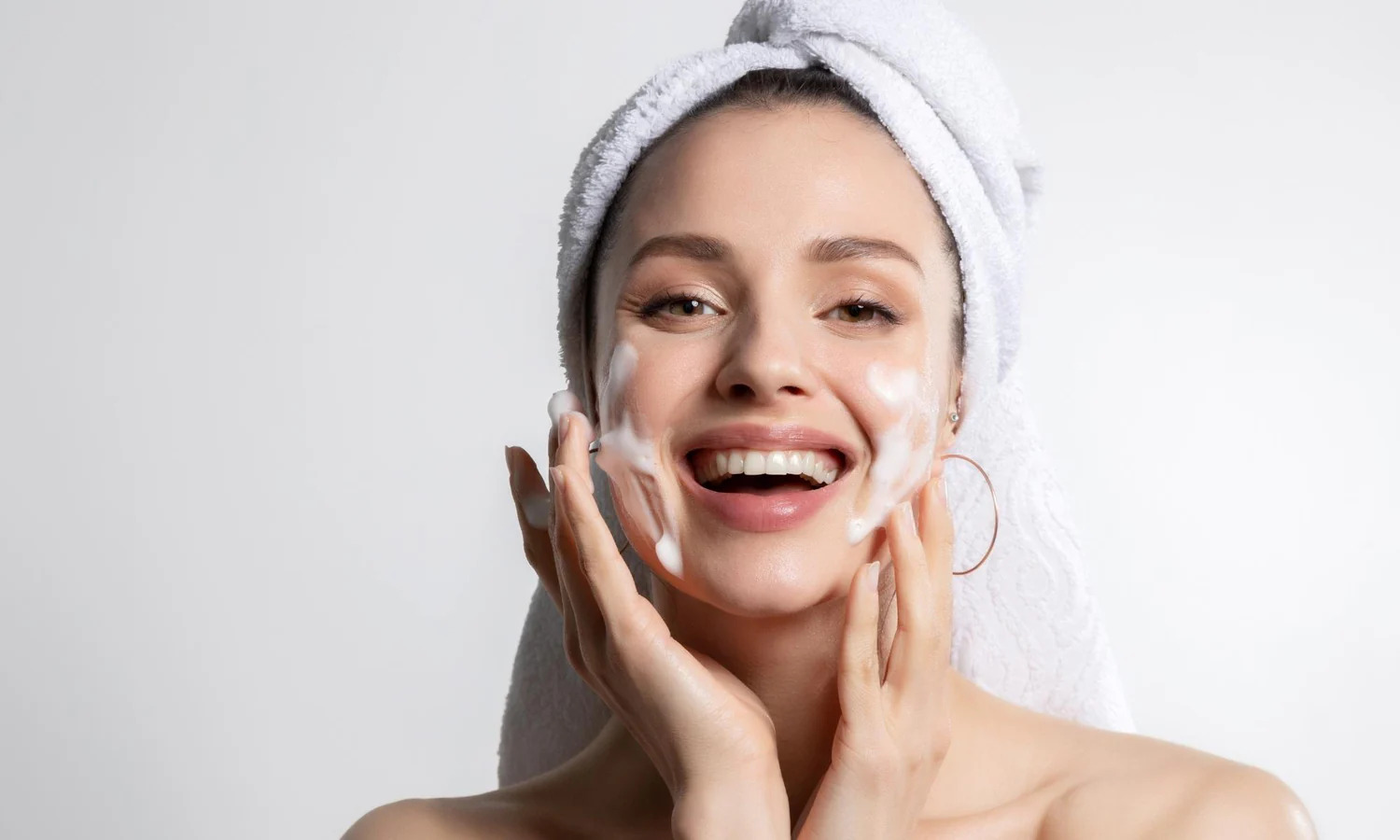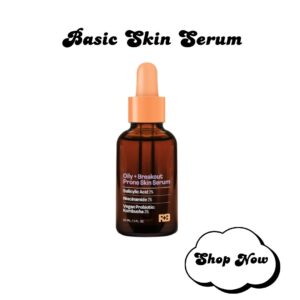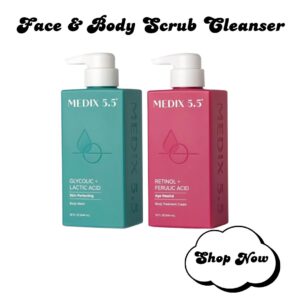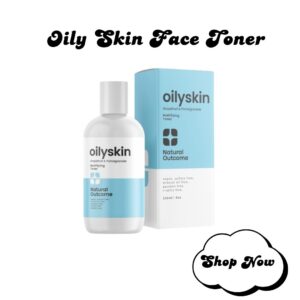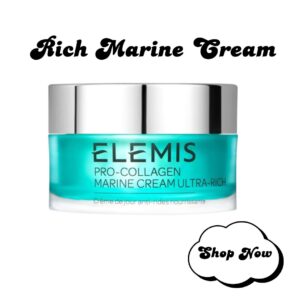Oily skin is a common issue many of us face, often leading to acne problems that can affect our self-esteem and skin health. This blog aims to provide a detailed guide on managing oily and acne-prone skin with simple yet effective methods and routines. We often come across questions related to managing Oily and Acne-prone skin. Therefore, we decided to create a detailed blog to help you understand and manage this skin type effectively. If your skin is consistently shiny, greasy, and often has outbreaks, you likely have oily skin. This skin type is prone to Acne because the excess oil accumulates and clogs pores, leading to blackheads, whiteheads, and other forms of acne.
Establish a Skincare Routine
Cleansing is Crucial
For individuals with oily skin, it is crucial to wash your face twice daily using a mild cleanser and lukewarm water to remove excess oil without stimulating further oil production. Cleansing in the morning helps eliminate oil build-up from the night before, while evening washing removes daily impurities. This twice-daily cleansing routine prevents pores from clogging, thereby reducing the likelihood of acne outbreaks. Choose a gentle cleanser that doesn’t strip your skin entirely of its natural oils to avoid triggering increased oil production.
Choosing the Right Cleanser
Selecting the right cleanser is key to controlling oil and preventing acne. An ideal choice would be a gel-based, oil-free cleanser enhanced with active ingredients like salicylic acid, tea tree oil, neem, and turmeric. These ingredients are known for their anti-inflammatory and antibacterial properties, helping to clear out clogged pores and reduce breakouts. However, if any product causes skin irritation, discontinuation is advised to prevent further adverse effects. Regular use of the right cleanser can significantly improve your skin’s appearance by maintaining a clean and balanced complexion.
Moisturize Wisely
Although oily skin might appear to be well-moisturized, using a moisturizer is still essential to maintain skin health. Opt for a lightweight, non-comedogenic, oil-free moisturizer to keep your skin hydrated without adding more oil. This step helps normalize your skin’s hydration levels, potentially reducing oil production caused by skin dehydration. Moisturizers formulated for oily skin provide the necessary hydration that aids in maintaining a balanced sebum production, thus preventing the common cycle of dryness-induced oiliness.
Sun protection for oily skin
Using sunscreen daily is crucial, even for oily skin types, to protect against harmful UVA and UVB rays that can exacerbate acne and oiliness. Choose a broad-spectrum, gel-based, oil-free sunscreen that feels light on the skin and doesn’t leave a greasy residue. These formulations help safeguard your skin from the sun without clogging pores or increasing shine, essential for maintaining clear skin. Regular Sunscreen application is a critical step in any skincare routine, particularly for preventing sun-induced damage and keeping oily skin under control.
Be Gentle with Exfoliation
Exfoliation is necessary for removing dead skin cells and excess oil, which contribute to clogged pores and acne. However, it is important to exfoliate gently and not more than once every ten days to avoid irritating the skin and triggering an increase in oil production. Opt for gentle exfoliators that contain mild acids like glycolic or salicylic acid. These help to slough off dead skin cells and deep-clean pores without harsh scrubbing, maintaining healthy skin turnover and reducing the risk of acne.
Choose Makeup Carefully
Choosing the right makeup is vital for those with oily and acne-prone skin. Opt for oil-free products to avoid clogging your pores. It’s essential to select foundations and other complexion products that are labelled non-comedogenic, which means they don’t contain ingredients known to block pores. Besides choosing the right products, it’s equally important to remove makeup thoroughly at the end of the day. Always use a gentle yet effective cleanser designed for acne-prone skin to ensure all makeup residue is removed. This prevents buildup that can lead to new acne breakouts and keeps your skin clean and clear.
Avoid Touching and Popping Pimples
Touching your face frequently can transfer oils and dirt from your hands to your skin, which may exacerbate acne conditions. It’s important to keep your hands away from your face unless necessary—like during cleansing or applying products—and ensure they are clean to minimize the risk of irritation and infection. Additionally, resist the urge to pop pimples. Squeezing pimples can push bacteria and pus deeper into the skin, causing more inflammation and potential scarring. Instead, use a spot treatment with salicylic acid or benzoyl peroxide to manage breakouts effectively.
Diet Considerations
Diet plays a significant role in skin health, and certain foods can trigger oil production and acne flare-ups. To help control your Skin Condition, avoid high-glycine and sugary foods as they can stimulate excess sebum production. Focus instead on a balanced diet rich in vegetables, fruits, and lean proteins. These foods are not only good for overall health but also support skin repair and maintenance. Incorporating a variety of antioxidants, vitamins, and minerals in your diet can improve skin clarity and reduce inflammation, helping to keep acne at bay

